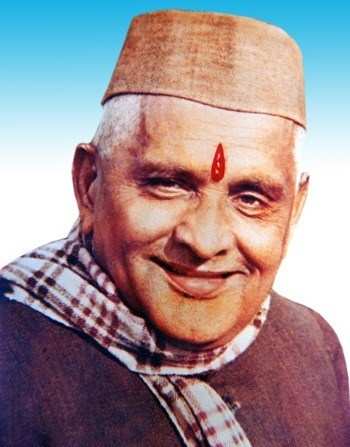Pdt. Janardan Rai Nagar: A Litterateur Less Discussed
Janardan Rai Nagar , born on 16th June 1911 is known more as an educationist since the institution he founded on August 21, 1937 became a well known centre for people’s education in his life time and his vision raised it to the height that the UGC and Government of India conferred upon it the […]

Janardan Rai Nagar , born on 16th June 1911 is known more as an educationist since the institution he founded on August 21, 1937 became a well known centre for people’s education in his life time and his vision raised it to the height that the UGC and Government of India conferred upon it the status of a Deemed to be University institution. It is another part of the story that his predecessors lacked the vision he had and gradually it lost its vigour and lustre. Today it is in the hands of those who in no way understand and relate to what he envisioned this great institution to be.
The attempt in this brief article is , however, not to talk about the myopic vision of the present administrators of the University founded by him but to remember his literary contribution which is an equally important contribution he made to the society. In fact, it is the literary acumen of Pdt. Nagar which made him rise over and above all the people like Mohan Singh Mehta, K.L.Shrimali and others who founded various institutions for the education of people before independence. Pdt. Nagar went to Banaras for his higher education and came in contact with Premchand and Jainendra, who were both impressed by his literary competence. When Premchand was the editor of literary magazine Hans, he published many stories of Janardan Rai Nagar, then a budding story writer. Premchand chose to write about the villages and rural life of India with a realistic approach. In his stories Pdt. Nagar also tried to follow him. Some of his stories need a mention here as they represent India of the time of partition. One is titled “Kareema Tui” which is based on the communal conflict in Udaipur in the wake of partition. His stories were published by Rajasthan Sahitya Akademi in two volumes. Incidently, Janu Bhai was the founder Chairman of Rajasthan Akademi and played a pioneering role in its development. Many of his other stories in the two books border on Memoirs and pen portraits.
But what makes Pdt. Nagar a writer of prominence is his reconstruction of myths and delineation of Indian philosophy in his fiction titled ” Jagadguru Shankaracharya”, “Shri Ram Rajya”, “Sugreev” and ” Ram Lakshman”. The fictionalization of the narratives of an epic the Ramayan is worth reading. He has made the characters of the ancient epic come back to life in all their sensual fascination. In his Ram Katha all characters including human beings, animals, birds and even trees assume human sensibility and utter human language. His Ram is the supernatural being with more than human strength but at the same time he is as emotional and sensual as any ordinary human being. Lakshman is more pragmatic and prosaic.
The epic novel Jagadguru Shankaracarya is a classic. Running into 5500 pages this novel recreates the narrative of AdiShankaracarya embedded with the Adwaitwad of the Upanishads. The beauty of this epic novel is the rich texture of the lexicon selected and the intertwining of the mythical with the fictional and the philosophical.
Pdt. Nagar was a playwright as well who not only wrote plays like ” Chanakya”, “Uda Hatyara” and “Patit Ka Swarg” but also performed in theatrical presentations of his plays.
His prose-songs relate him to Gurudev Ravindra Nath Tagore whose similar songs of Geetanjali won him the coveted Nobel prize. Pdt. Nagar’s “Gadya Geet” are deeply philosophic and romantic. Collected in the work titled “Ek Shant Alok Mein Prasann” these songs are emotional and reflective outbursts of the poet who is always swinging across the material and the divine.At times it appears as if his poetry is an extension of is fiction and vice -versa.
Pdt. Nagar also edited more than half a dozen literary magazines and journals but more than anything else it is his fiction and poetry which make him a doyen of literature of Mewar. It must be stated here that he did not get the critical acclaim that he rightfully deserves.
Contributed by: Dr.H.S.Chandalia, Prof. of EnglishTo join us on Facebook Click Here and Subscribe to UdaipurTimes Broadcast channels on GoogleNews | Telegram | Signal


